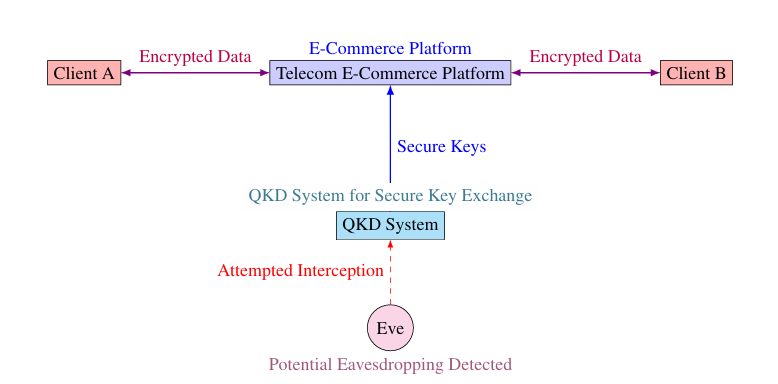Applications of Quantum Computing in Telecom E-Commerce: Analysis of QKD, QAOA, and QML for Data Encryption, Speed Optimization, and AI-Driven Customer Experience
Rahul Khurana
Bothell, WA, USA
https://orcid.org/0009-0005-5267-2006
Keywords: clinical decision-making, data integrity, data pipelines, healthcare data management, HIPAA compliance, IoT data integration, ETL process
Abstract
Quantum computing methods take advantage of the principles of superposition and entanglement to facilitate parallel computing that is beyond the reach of classical systems. These advances have implications for the telecommunications e-commerce industry because the sector demands secure data transmission, optimal resource allocation, and analysis of huge volumes of data. It reviews three important applications of quantum computing in this domain: Quantum Key Distribution (QKD), the Quantum Approximate Optimization Algorithm (QAOA), and quantum machine learning (QML). QKD makes data more secure by using quantum states that will allow keys to be exchanged securely and make it resistant to quantum attacks against classical encryption. QAOA is reviewed for their potential to solve network traffic management and resource allocation to ensure computational time reduction and network efficiency enhancement. QML is also discussed with its role in processing high-dimensional customer data to optimize the capability of predictive analytics and customer behavior analysis using quantum-enhanced models. The other issues tackled in the study involve qubit decoherence, the requirement for quantum error correction, and integration with quantum-classical systems. We argue here that these challenges need to be solved for practical deployment of quantum computing in telecom applications. Our findings suggest that meeting full-scale implementation will require these barriers.


